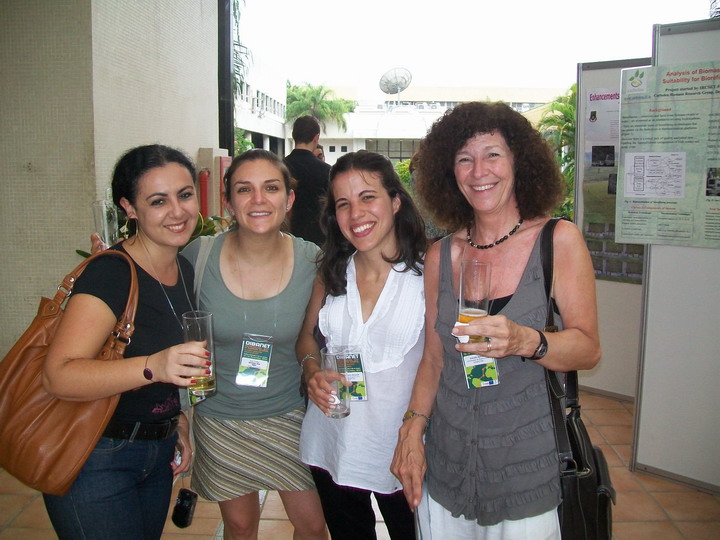This project DIBANET will combat these threats and help to eliminate diesel imports by developing novel technologies that will allow the sustainable production of diesel miscible biofuels from wastes. Biofuels are an important alternative to fossil fuels that can minimise the impact of energy production on global climate change. The project supports the development of technologies with a view to reducing dependency on fossil diesel imports in Latin America and Europe. Jul 1, , End date: The links between regions will be further enhanced by the establishment of inter-regional student scholarships; 2 large brokerage events to engage all stakeholders; and a summer school for knowledge transfer.
| Uploader: | Dum |
| Date Added: | 2 July 2017 |
| File Size: | 16.44 Mb |
| Operating Systems: | Windows NT/2000/XP/2003/2003/7/8/10 MacOS 10/X |
| Downloads: | 73903 |
| Price: | Free* [*Free Regsitration Required] |
In focusing on the use of wastes as feedstocks for biofuel production DIBANET will also provide sustainable and economical alternatives to landfill and incineration of wastes, both of which are inefficient and produce significant greenhouse gas emissions with little returns.
This enhancement of co-operation will ensure that the whole process, from feedstock to process residues, is engineered dbanet maximum efficiency.
INTRODUCTION
DIBANET will also foster strong links between regions will be further enhanced by the establishment of scholarships for Latin American students; 2 large brokerage events to engage all stakeholders; and a summer school for knowledge transfer. Or sign dibajet with your account:.
This chemical process means that a much wider variety of biomass types can be utilised, with a particular dibaneh on the organic wastes and residues of Europe and Latin America. The focus is on creating sustainable biofuels from waste through the production of a diesel-miscible biofuel from organic wastes and residues. DIBANET will improve the state of the art in the biorefining and pyrolysis of biomass in order to create sustainable second generation biofuels from wastes and residues that can be mixed with fossil diesel and used in a regular diesel engine, while complying with industry standards.
This enhancement of co-operation will ensure that the whole process, from feedstock to process residues, is engineered for maximum efficiency. This project DIBANET will combat these threats and help to eliminate diesel imports by developing novel technologies that will allow the sustainable production of diesel miscible biofuels from wastes.
The links between regions will be further enhanced by the establishment of inter-regional student scholarships; 2 large brokerage events to engage all stakeholders; and a summer school for knowledge transfer. Biofuels are an important alternative to fossil fuels that can minimise the impact of energy production on global climate change.
Europa Media Blog | Europa Media Trainings
Propose a Picture for this project. DIBANET will increase the yield from biomass, beyond the current art, of levulinic acid, a valuable platform chemical that can be combined with ethanol to make a diesel fuel. It will build on the key, complementary, strengths of researchers and industries of both regions to advance this field.
The project supports the development of technologies with a view to reducing dependency on fossil diesel imports in Latin America and Europe. Traditional first generation biofuels are made from food crops such as corn dibnaet wheat compete with food causing food-vs. Log In Sign Up.

Log In Forgotten password? Biochar, resulting from pyrolysis of the wastes and residues will be examined for use as a soil amender for enhanced biomass yields and carbon sequestration. Jul 1,End date: Only images in landscape format larger than x pixels with maximum 2MB file size allowed. Research Admin Unlike many other biofuel technologies the DIBANET process is non-biological and instead uses acid hydrolysis as a means of processing biomass for the production of a diesel-miscible biofuel.
I Agree to the Privacy policy and Terms.
DIBANET :: European Project :: Up2Europe
All of the fuels produced will be tested to ensure compliance with current fuel requirements. Log In Sign Up Keep in contact. DIBANET is an Irish-led research project aimed at dibaner an integrated approach to biomass development that further enhances international cooperation between the EU and Latin America in the field of biofuels.

Looking for a partnership? Advanced analytical techniques to benefit levulinic acid yields will be developed and employed online to allow real-time adjustment of biomass conversion conditions.
DIBANET will lead the way for sustainable large scale biofuel production bywhile avoiding land use impacts and resolving the problems of increasing organic waste levels. The Latest EU Calls. DIBANET ensures that the outputs of the research are fully exploited to the maximum benefit of both regions, leading to a strong future relationship in trade and research.
From this residue treatment process a bio-oil and biochar will result. Processes will be advanced to utilise the solid residue that remains after the acid-treatment. The increasing reliance on imported diesel fuels, in addition to annual increases in the quantities of organic wastes are threats to the EU and Latin America.

Комментариев нет:
Отправить комментарий